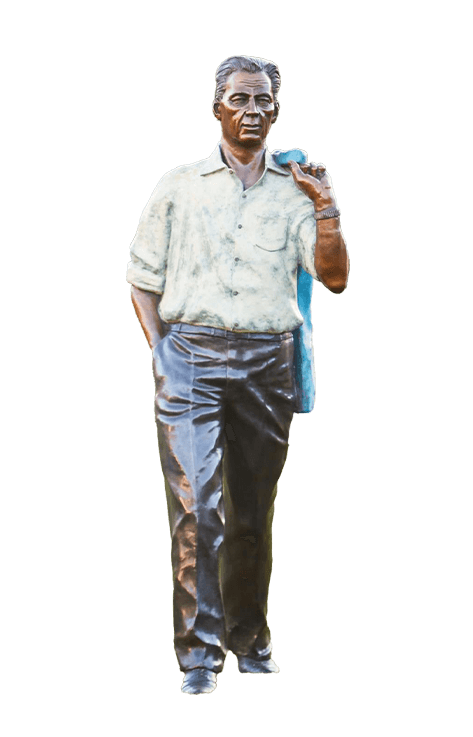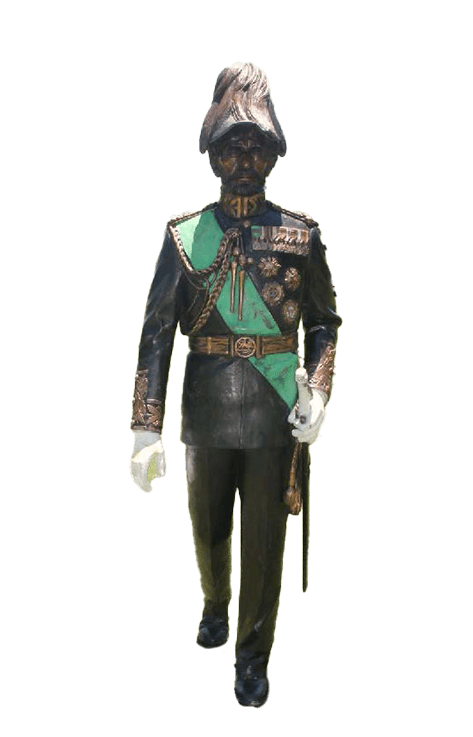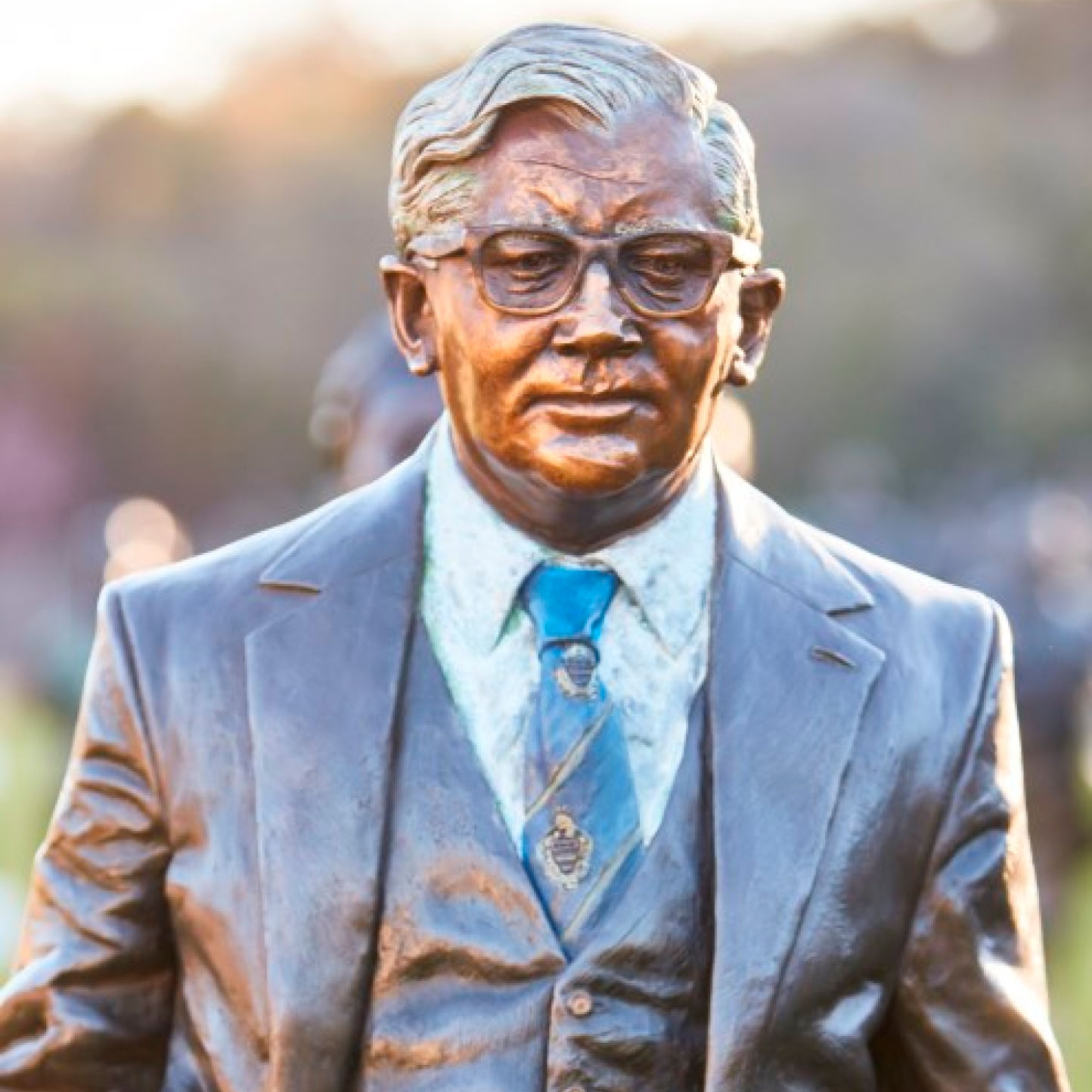
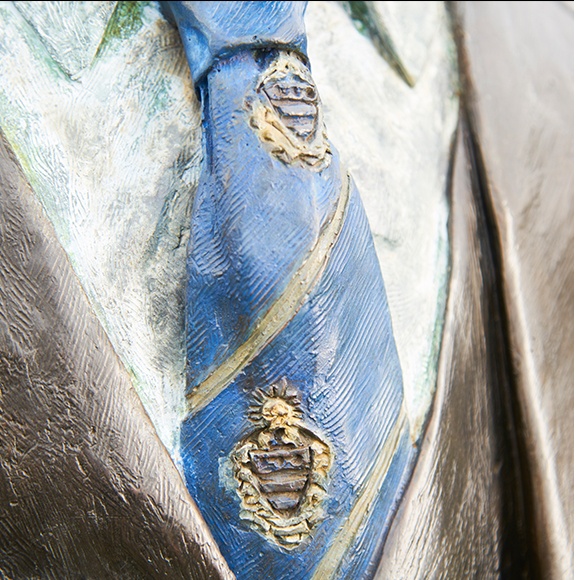
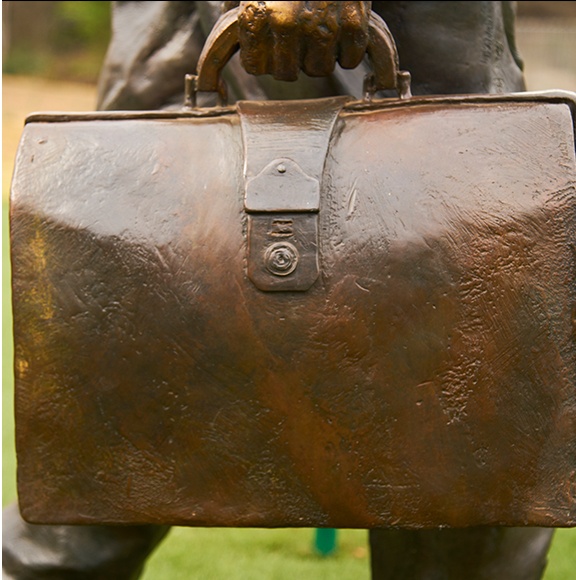
"With confidence we lay our case open before the whole world. Whether we conquer or whether we die: freedom shall rise in Africa like the sun from the morning clouds."
Fischer quoting Afrikaner leader Paul Kruger’s address in 1881 to the President and the Free State Parliament in his statement from the dock. Supreme Court, Pretoria, 28 March 1966
Bram Fischer
1908 - 1975
Afrikaner Revolutionary, Lawyer, South African Communist Party (SACP) Leader, Member of the Congress of Democrats, Political Prisoner
Bram Fischer came from a leading Afrikaner family, which included his grandfather who had been prime minister of the Orange River Colony and his father the judge-president of the Orange Free State. He gave up a prestigious political career to pursue his communist ideals and to fight for justice for all.
Fischer joined the SACP around 1940 while becoming a highly successful corporation lawyer. He worked with the legal team in the 1956 Treason Trial and later led the defence in the 1963 Rivonia Trial. The government called for his arrest after he voiced his political beliefs during the trial. His family, friends and comrades begged him to flee South Africa, but he refused. He was on the run for almost a year before he was arrested and sentenced to life imprisonment for sabotage by conspiring with others to cause a violent revolution.
He spent nine years in prison. Dying of cancer, he was released to his brothers home in Bloemfontein, where he died a few weeks later. After cremation, prison regulations forced the family to hand Fischers ashes back to the authorities. The ashes have never been located.
Did You Know?
Fischer was jailed in Pretoria Central Prison, where white political prisoners were held. Once there, he was severely mistreated by Afrikaner warders, who considered him a Bandiet (Outlaw) and a traitor and punished him for his non-racist convictions.
